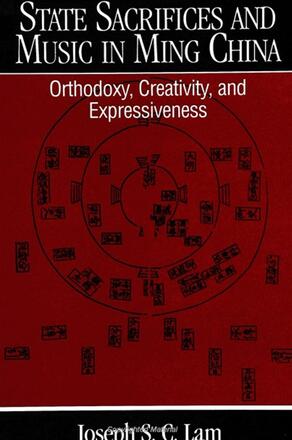
State Sacrifices and Music in Ming China
Orthodoxy, Creativity, and Expressiveness
Alternative formats available from:
Presents historical, ritual, and musical data preserved in authentic Ming documents illustrating the significance of state sacrifices in imperial China.
Description
This book presents a wealth of historical, ritual, and musical data preserved in authentic Ming documents, describing ritual and musical structures, thoughts, and actions of Ming emperors and scholar-officials who practiced court ritual and music for official and personal purposes. Not only the significance of Ming dynasty state sacrifices and music are illustrated, but also the roles they played in imperial China.
Joseph S. C. Lam is Associate Professor of Music at the University of Michigan.
Reviews
"Based upon careful and critical reading of a comprehensive body of source material, the author tells the story of state sacrifices and music in the Ming court, a set of practices and beliefs that, by Ming times, was already perceived to be two millennia old. With fascinating details, the author brings to vivid life conflicts and resolutions in the complex hierarchy of court politics between the emperor and his ritual and music specialists. The conflicts and resolutions in their preparation and implementation of these grand ceremonies underscore the universal concerns of constancy and change, orthodoxy and individuality, timelessness, and uniqueness. This book is rich in details, broad in scope, and sharp in its theoretical focus. " — Bell Yung, University of Pittsburgh
"This book reveals the central relationship between music and ritual in Ming China. Anyone who reads texts about Ming government is constantly confronted with statements identifying ritual and music as twin instruments of government. Nowhere in the scholarly literature is the nature of Ming music explained. Joseph S. C. Lam has now given us a guide to this important area. " — Edward L. Farmer, University of Minnesota